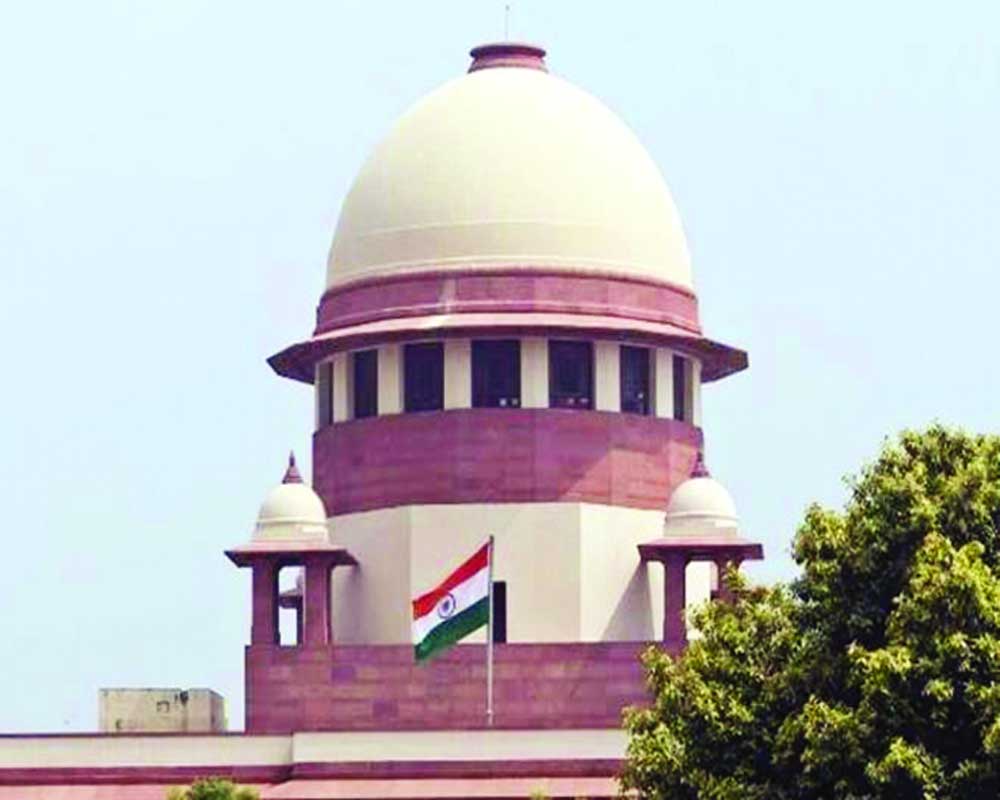SC has asked parties to publicise details of criminal charges against candidates. But without a law, will the shaming work?
The Supreme Court has held the mirror to political parties many times in a bid to decriminalise our legislature but every election just compounds the problem with them showing no serious intent to comply. So the number of MPs with criminal cases pending against them has gone up from 24 per cent in 2004 to 43 per cent in 2019. This despite its ruling of September 2018, when a five-judge Constitution Bench had held that all candidates would have to declare their criminal antecedents to the Election Commission (EC) before contesting polls and had called for a wider publicity of their records, through print and electronic media. It had even asked Parliament to formulate a law to ensure that criminals are disbarred so that the “polluted stream of politics” is cleansed. Quite exasperatedly, therefore, this time, reacting to a contempt plea, the court has struck hard, involving the polity as a whole in objectively assessing a candidate’s worth. It has asked all political parties to publicise full details, not just winnability, of tainted candidates, during Central and State elections, on traditional and digital media. Parties, too, now have to list the nature of the charges against a tainted candidate and clarify why then they had chosen to give a ticket to him/her. They have to send a compliance report to the EC within a specified time period — 48 hours post-selection or two weeks before the first date for filing of nominations, whichever is earlier. Any violation would be considered contempt of court. In a sense, the court is also nudging the electorate, asking it to take a measured call. And by asking parties to list reasons why they have chosen a tainted name as their worthy bet, it is putting the onus on them to expose their hypocrisy and subject themselves to public scrutiny.
The State Assemblies are no better when it comes to legislators with criminal backgrounds. In the just-concluded Delhi polls, the Association of Democratic Reforms (ADR) found that more than half the candidates had a black book. In 2020, 43 MLAs declared criminal cases against them while in 2015, that figure was 24. The number of MLAs with serious criminal cases, including rape, attempt to murder and crimes against women, is 37. The last is the most heinous, considering most lawmakers use their political patronage, given their indispensability in managing local cadres and units, to get themselves off the hook. The recent examples of rape survivors being bullied into political submission are all too many. Both BJP MLA Kuldeep Sengar and former Union Minister Swami Chinmayanand have used their political clout to abuse women and stave off repercussions on their political careers for years. The ADR report says that 76 lawmakers across the country have declared cases related to crimes against women. In the last five years, 572 such candidates have contested Lok Sabha, Rajya Sabha and Assembly elections. From 2009 to 2019, there has been a 231 per cent spike in the number of errant candidates contesting the Lok Sabha elections. For the same period, the number of offender MPs has increased by 850 per cent. This phenomenon cuts across party lines, each of which is guilty of ignoring crimes as a liability of its candidates. Worse, whenever they have won, they have been further rewarded or entrusted with a bigger political role. Even on the day of the verdict, Anand Singh, an accused in mining and forest crime cases, was appointed as the new environment minister in Karnataka. Will full disclosure, therefore, serve much of a purpose as most voters have developed the habit of choosing a known evil for the sake of their representative worth in their lives? Besides, given the heft of such leaders in matters local, most constituents are too intimidated to exercise their choice in an impartial manner. Till they are assured that such nominees are punished, nothing can change. What then is the way forward? Although the EC has been given additional powers to punish candidates who file false or misleading financial disclosures, nothing can be effective without disclosure of political contributions. It must insist on independently-audited party accounts. Experts have suggested linking political party registration and tax benefits to basic democratic and transparency standards and creating a new legal mechanism to adjudicate cases of accused MLAs and MPs. But in the end, it depends on the political will of the Legislature and the Executive to push for a binding law. Even now, Section 8 of the Representation of the People Act, 1951, bans convicted politicians from contesting. However, those facing trial, no matter how serious the charges, can still contest. So beyond the court making a moral call, the parties hold the power to change themselves.
(Courtesy: The Pioneer)








 OpinionExpress.In
OpinionExpress.In















Comments (0)